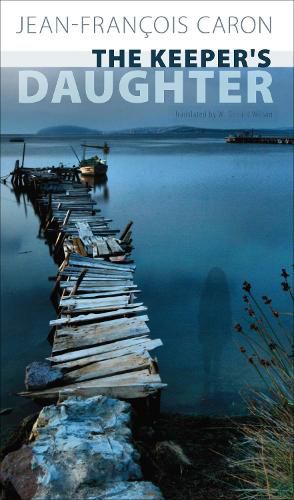Readings Newsletter
Become a Readings Member to make your shopping experience even easier.
Sign in or sign up for free!
You’re not far away from qualifying for FREE standard shipping within Australia
You’ve qualified for FREE standard shipping within Australia
The cart is loading…






As a way to draw visitors to their isolated fishing village on Quebec’s North Shore, the tourist bureau commissions a documentary film recreating life as it was lived there in the 1940s and 50s. To gather material for the project, the filmmaker is sent in search of Rose Brouillard, now an old woman but raised on an island just offshore by Onile, a local fisherman. Rose is finally tracked down in Montreal, where she lives a solitary life fogged by one of the inevitabilities of old age - failing memory.
Dorothea (the name Rose gives the young filmmaker), takes her back to scenes from her childhood and invites her to tell her story as they go, and so we return to a past assembled from Rose’s fragmented recollections. Structured as a series of short cinematic takes, this novel about recovering both personal and shared histories is told in a polyphony of voices, including Rose herself (as a child, an adolescent, and in her old age), the sexton of the village church, his three female cousins, an elderly neighbour, a villager who passes time on the harbour wall, and Rose’s long-deceased mother. We see fishermen on the docks with their nets, hard-at-work villagers with shirtsleeves rolled up to the elbow, leafy gardens, and tree-lined streets, all recreated during Rose’s reminiscences. The problem is that many of these scenes are invented, not real. Does that matter? Or are the stories we tell more important?
$9.00 standard shipping within Australia
FREE standard shipping within Australia for orders over $100.00
Express & International shipping calculated at checkout
As a way to draw visitors to their isolated fishing village on Quebec’s North Shore, the tourist bureau commissions a documentary film recreating life as it was lived there in the 1940s and 50s. To gather material for the project, the filmmaker is sent in search of Rose Brouillard, now an old woman but raised on an island just offshore by Onile, a local fisherman. Rose is finally tracked down in Montreal, where she lives a solitary life fogged by one of the inevitabilities of old age - failing memory.
Dorothea (the name Rose gives the young filmmaker), takes her back to scenes from her childhood and invites her to tell her story as they go, and so we return to a past assembled from Rose’s fragmented recollections. Structured as a series of short cinematic takes, this novel about recovering both personal and shared histories is told in a polyphony of voices, including Rose herself (as a child, an adolescent, and in her old age), the sexton of the village church, his three female cousins, an elderly neighbour, a villager who passes time on the harbour wall, and Rose’s long-deceased mother. We see fishermen on the docks with their nets, hard-at-work villagers with shirtsleeves rolled up to the elbow, leafy gardens, and tree-lined streets, all recreated during Rose’s reminiscences. The problem is that many of these scenes are invented, not real. Does that matter? Or are the stories we tell more important?